A US-style migration debate is taking over Britain’s election - with a Trump acolyte leading the charge
At the end of Clacton Pier, where the salty North Sea breeze tangles with the sickly stench of the nearby amusement hall, a row of amateur fishermen gaze way off past the horizon, towards Europe.
The lights and the noise here start early every day. Seagulls dart down from the sky; arcade games blare over each other; Radiohead, the Nineties alternative band, wails gloomily from a tinny speaker, until an employee notices, and puts on a dance anthem instead.
The funfair is always in town, but the people have stopped coming. “We seem to be a bit forgotten down here in Clacton,” Danny Botterell, a small business owner, tells CNN of his aging seaside home, which can no longer rely on visitors from London. He looks towards an empty seafront. “It’s a bit like God’s waiting room.”
But Clacton is the front line of Britain’s migration debate. And there is still one man who can draw a crowd: Nigel Farage, the rabble-rousing architect of Brexit and figurehead of the country’s populist right, who told hundreds on the pier last week that he was running to be their member of parliament in next month’s general election.
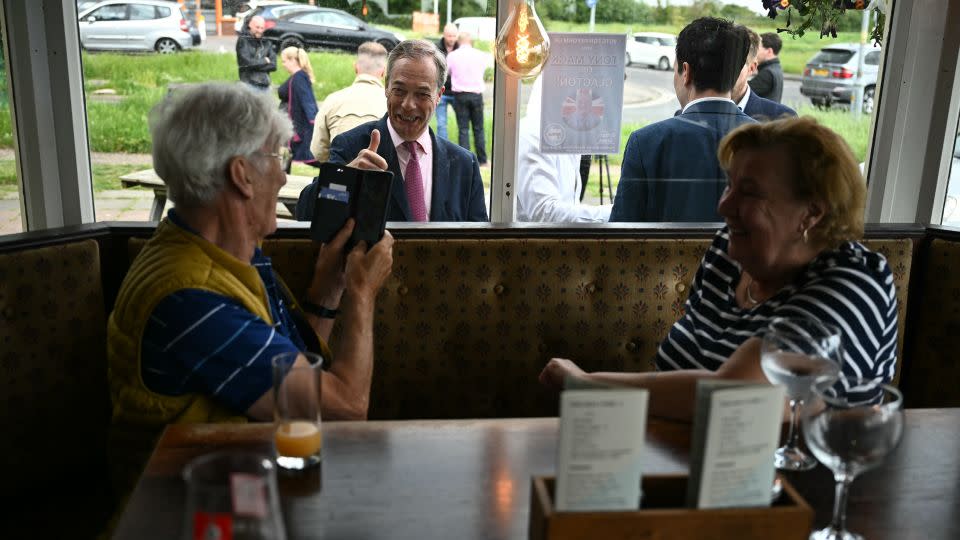
Farage has pushed the boundaries of Britain’s conversation on migration for a decade, and more recently sought to do the same in the United States, campaigning regularly alongside former President Donald Trump. He has returned to hammer the ruling Conservatives from the right once more, as though little has changed since the tempestuous EU referendum campaign eight years ago that resulted in the UK’s departure from the bloc.
“We know Nigel likes to get his point across, and shout,” Botterell says. “That’s a massive positive.” Like many here, he expects Farage to “speak the truth.”
Farage is the favorite to win Clacton and become an MP at the eight attempt. His Reform party is meanwhile swallowing up the support of dissatisfied ex-Conservatives across Britain, dragging the ruling party into what opinion polls suggest will be an ignominious battle for second place behind runaway leader Labour.
One pollster this week had Reform – an upstart group formed by Farage in 2018, then known as the Brexit Party – overtaking the Conservatives. Others have them close behind.
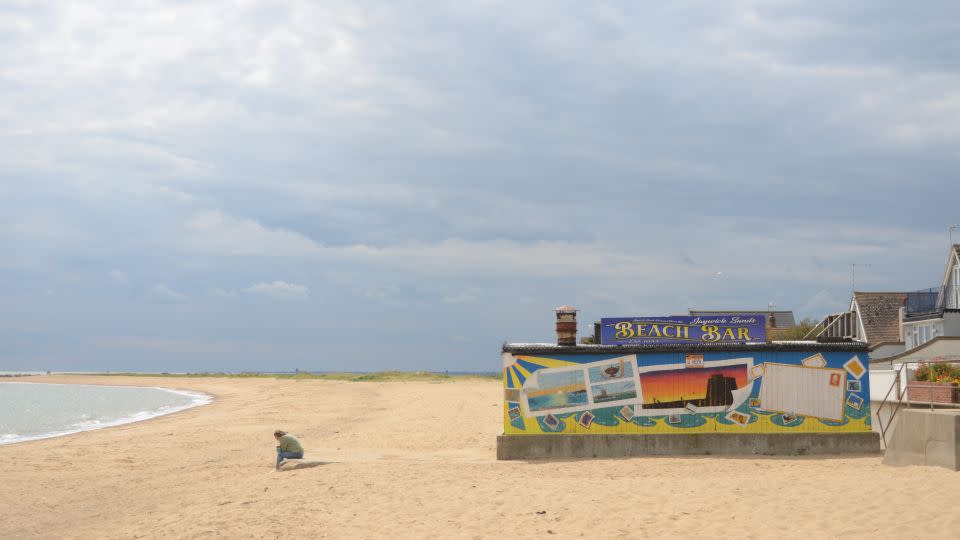
Britain’s first-past-the-post electoral system makes it difficult for fringe groups like Reform to win more than a handful of seats in Westminster. But if the predicted surge holds, it could push Prime Minister Rishi Sunak’s party to a once-in-a-lifetime defeat, and hand Farage an outsized role in British politics nonetheless.
That is not an outcome asylum experts or rights groups welcome. They say Farage’s presence in British life has already warped the country’s understanding of migration, and hardened attitudes towards the tens of thousands caught in a backlog of unresolved asylum claims.
“He can talk about migration in a way that makes it sound like he’s really telling the truth – telling it like it is, and playing into people’s deepest fears and prejudices,” Zoe Gardner, a migration policy specialist, tells CNN.
“Farage knows he needs to stay one step ahead of where even the right wing of the Tories are,” she adds, likening his rhetoric to Trump’s on illegal migration across the southern US border.
“They’ll always want more,” she says. “Their career is based on pushing things ever, ever, ever further.”
A ‘closed’ asylum system
Clacton’s pub landlords are well-acquainted with Farage, a natural political campaigner typically pictured with a pint in his hand.
“He came in today,” says Louise Brockwell, who runs the Three Jays pub, nodding to a stash of campaign posters left behind the bar. “When he turns up, loads of people turn up.”
People recoil, too; few Britons are as divisive as Farage, whose career has relied in large part on his willingness to reach for alarmist and confrontational language when discussing immigration. Since announcing his candidacy he has warned supporters of an “invasion” of asylum seekers, and was condemned by rival parties for claiming to Sky News that growing numbers of young Muslims “do not subscribe to British values.”
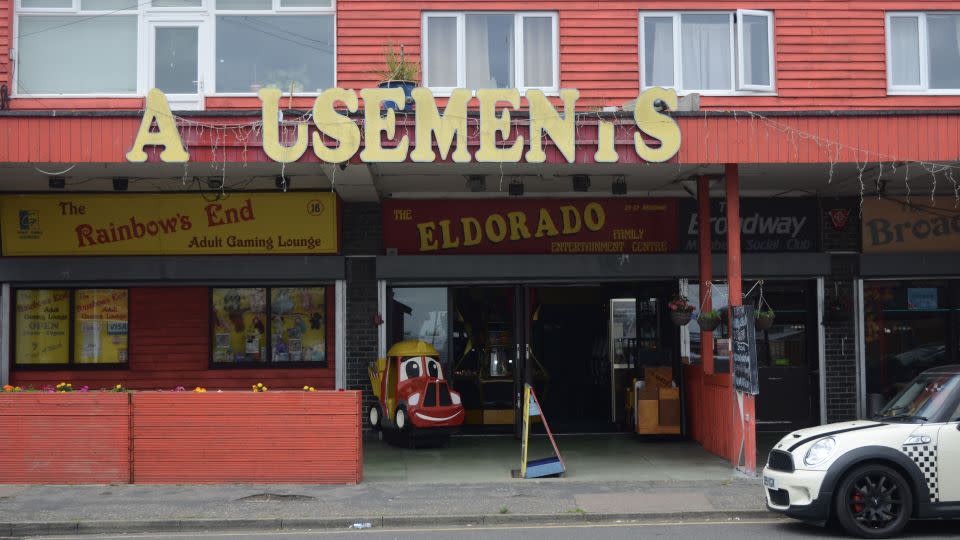
On Saturday, Foreign Secretary and former Prime Minister David Cameron – whose own premiership was thrown off course due to tussles with Farage over Europe – condemned his former foe’s claim that Sunak, whose parents migrated to Britain from India, “doesn’t understand our culture,” made after Sunak returned early from events marking the 80th anniversary of D-Day. Cameron told The Times: “You don’t have to watch sheep dog trials to hear a dog whistle.”
But Farage’s relevance doesn’t exist in a vacuum. Despite years of tough rhetoric and policies aimed at deterring the arrival of asylum seekers – devised largely to placate Farage’s supporters – Britain’s asylum system is creaking.
Legal migration is higher than it was before the 2016 referendum, which has benefitted Britain’s understaffed public services and sectors like hospitality – one in five healthcare workers is a non-UK national – but placed pressure on other parts of the socio-economic fabric, like housing.
And illegal migration – often mentioned in the same breath by Farage, and symbolized for millions of Brits by the small boat crossings across the Channel from France – has soared too, despite Sunak’s pledge to “Stop the Boats.”
Put simply, Britain’s approach to migrants and refugees is harsher, but less effective, than before.
“The Tories have effectively closed the asylum system. You arrive, (and) your claim will not be processed,” Gardner says. CNN has contacted the Home Office for comment.
Around 100,000 people are waiting to hear if they will be granted asylum – a limbo that can be punishing, particularly for those housed in hotels or detention centers, like the Bibby Stockholm barge that floats off Britain’s southern coast.
In the county of Kent, south of Clacton, one of those asylum seekers, Masood, tells CNN: “It’s not a nice feeling to constantly have in your mind that any day, you can receive a letter (sending) you to the barge,” or to the nearby Napier military barracks, another controversial detention site called “fundamentally unsuitable” by a group of MPs in 2022.
Masood was born and raised in Afghanistan and initially came to the UK on a student visa, after studying in the UAE. He applied for asylum last year, and was immediately put in a taxi and sent to live in the hotel where he remains today. He fears for his safety in Afghanistan, having been critical online of the Taliban prior to their 2021 takeover of the country. CNN is not publishing his last name, due to fears it would affect his claim.
“My entire family is back there, and they’re not recommending (I return),” he says. “I think if I decided to go back home, they might arrest me in the airport.”
He says his hotel is cramped, with most residents sharing rooms. Many have mental health difficulties, he adds. Laws prevent most asylum seekers from working, so while taxpayers fund their accommodation, they cannot contribute formally to the economy. But “they’re working anyway … they’re all getting paid in cash,” Masood says of his fellow hotel residents.
Regret in Brexit’s spiritual home
If Brexit began anywhere, it is Clacton.
The decision by its then-Conservative MP, Douglas Carswell, to defect to Farage’s UKIP party in 2014 accelerated Britain’s Eurosceptic movement. Two years later, amid a heated debate over migration that Farage and others promised would be reduced, seven in 10 people in Clacton voted to leave the EU. The town is one of the Whitest, oldest and poorest in the UK – all factors that correlated with support for Brexit.
“Clacton is a straw in the wind,” Carswell tells CNN now, recalling a sense in the town that “people who run the state … treat them with absolute contempt.”
“There’s been more of a conversation about these profound questions of governance, and national identity, in that part of Essex,” adds Carswell, who co-founded the Vote Leave campaign during the referendum and is now President of the Mississippi Center for Public Policy.
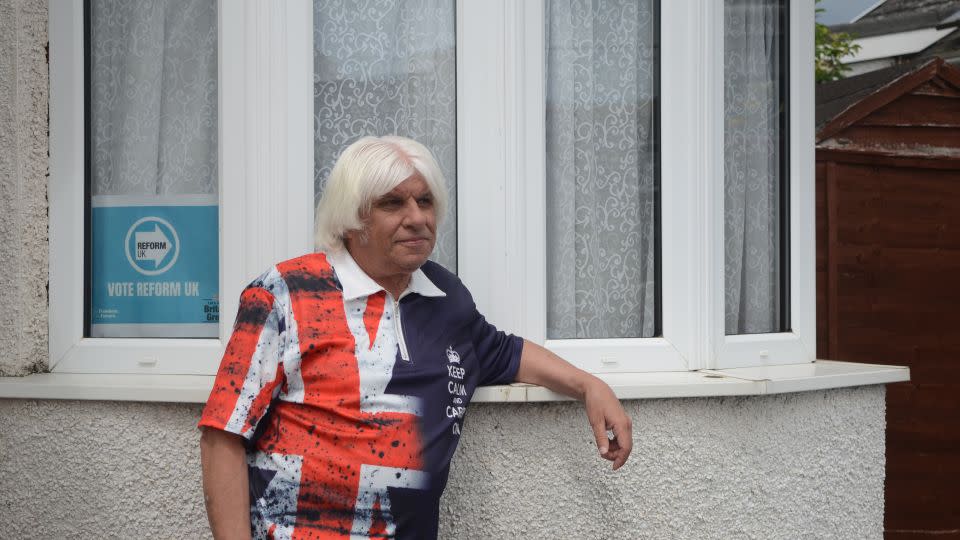
Back then, Brexit sliced Britain in two. Now it unites the country: virtually no-one thinks it is going well.
“I know why a lot of people (voted) out – the foreigners, immigrants. But it hasn’t changed, has it?” says 73-year-old John Terrier, outside his home in Jaywick, a village west of Clacton. He voted to leave too, but he has “Regrexit.”
“What was the point of doing it all?” Terrier says, hammering a nail into a garden door. “I wouldn’t mind going back in.”
As he speaks, his next-door neighbor snipes back, aghast. Bob Brace, 69, was at Farage’s rally last week. He sports a top emblazoned with a Union Jack. “Is this not the most patriotic town in the country? I believe it is,” he says.
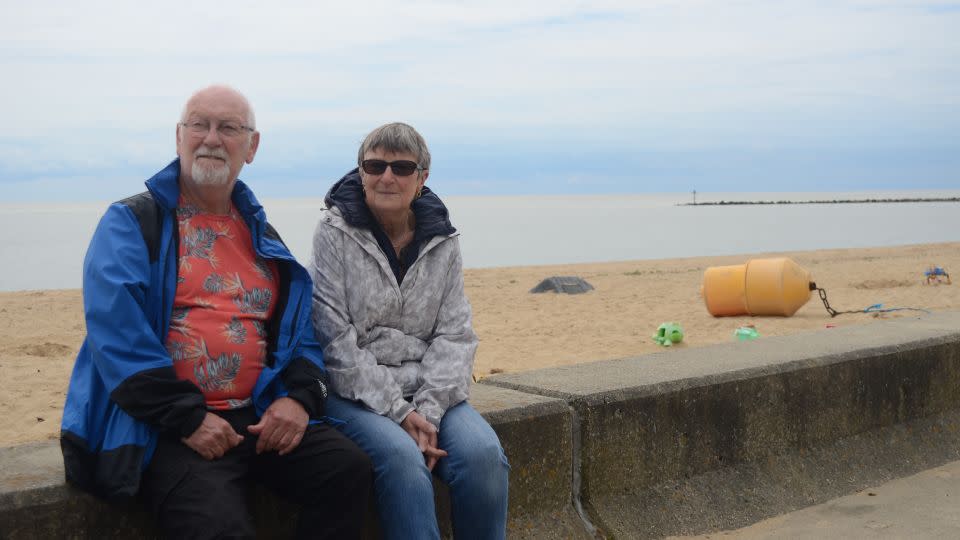
Opinion polls indicate that Britain would vote today to remain in the EU, though the public doesn’t support holding another bitter referendum. The painful memories of that entire project have, in many ways, been buried; neither Sunak nor Labour leader Keir Starmer see any value in unearthing the rows of the past decade.
There are other things to worry about, in any case. Jaywick, statistically England’s most deprived neighborhood, is comprised of ramshackle rows of beachside chalets, each third or fourth home boarded up like a blackened tooth. Residents here have many grievances – the roads, the health service, the schools – but concerns about immigration underpin almost every one.
And after last week’s European Parliament elections, in which the UK no longer plays a part, some see a movement brewing. “It’s not just here. It’s France, Netherlands, Germany, they’ve all got the same crisis,” says Karen French, a Reform supporter, sipping coffee and eating a sausage bap by the shore. “I’ve seen their votes and they’re all starting to head towards (the) far right as well.”
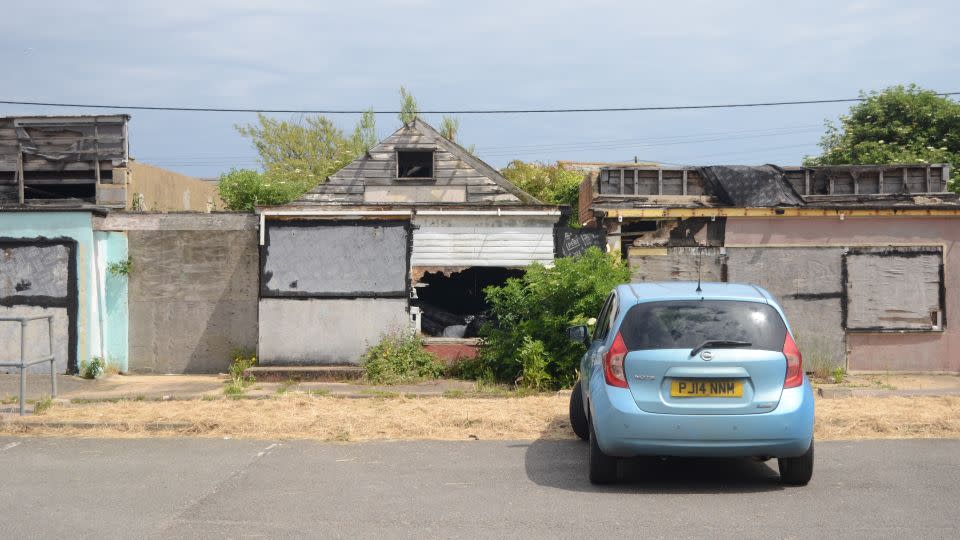
A political storm gathers
Farage initially announced he wouldn’t stand in the July 4 election, citing his desire to campaign on behalf of Trump in the fall. Farage declined to give an interview for this story, as did the Labour and Conservative candidates in Clacton.
But his U-turn animated both supporters and critics. Farage has had a milkshake tipped over his head and objects thrown at his open-top campaign bus in the past two weeks.
Several of Reform’s election candidates have meanwhile been dropped after racist comments they had made online emerged.
Farage’s entry also stoked Conservative fears of an electoral catastrophe.
“He’s definitely a polarizing figure. But from an electoral point of view, that doesn’t really matter,” says James Johnson, who ran polling at Downing Street during Theresa May’s premiership and then co-founded pollster JL Partners. “By the voters who are considering voting Reform, he is very, very, well liked” he says of Farage – more so than Queen Elizabeth II was among Britons, according to Johnson’s data.
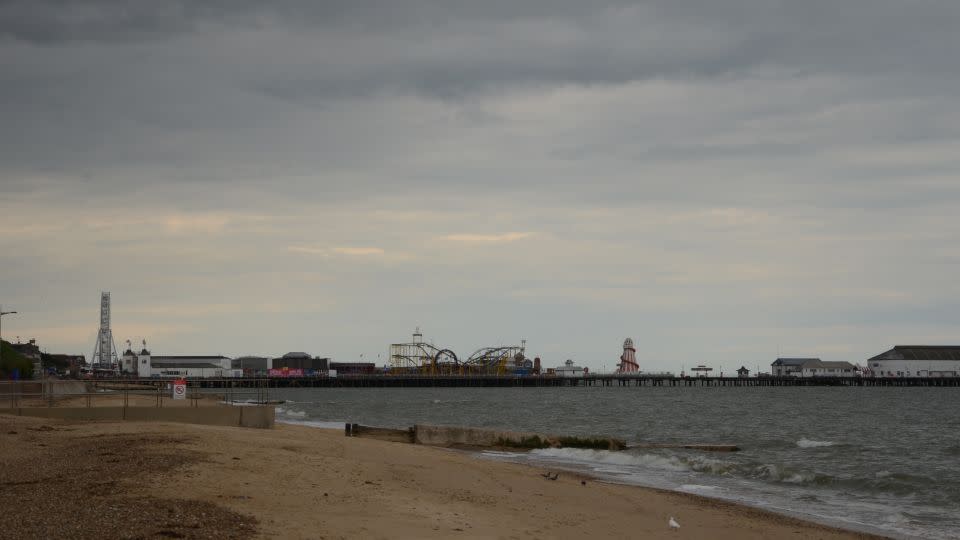
Not everyone in Clacton buys what Farage is selling. “It’s a lot of smoke,” says restauranter Dean Coles. “He’s a little bit shouty shouty, more than a do-er.”
Jehosh Adekiyesi, a social care worker, is blunter. “A lot of people say a lot of sh*t. When you give them recognition, they say more. When you ignore them, they become irrelevant,” he says. “I don’t take him seriously.”
But it is becoming harder not to; even pulling in a sixth of voters could demolish the Conservatives and elevate his voice in the postmortem that takes place on the opposition benches.
That could widen even further the chasm in understanding between his voters and Britain’s asylum seekers, experts fear.
“They really, desperately need a solution,” says Gardner.
For more CNN news and newsletters create an account at CNN.com


